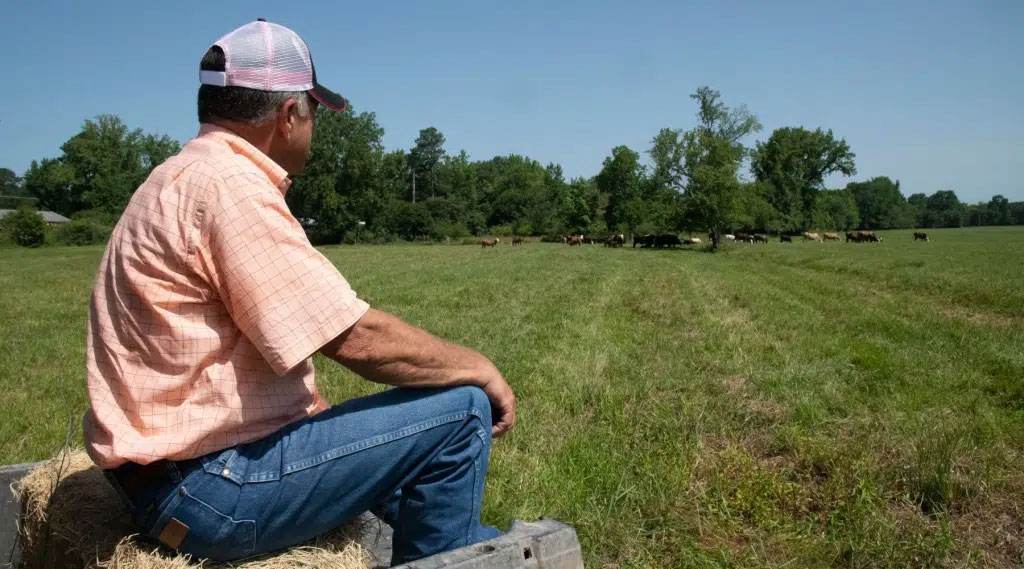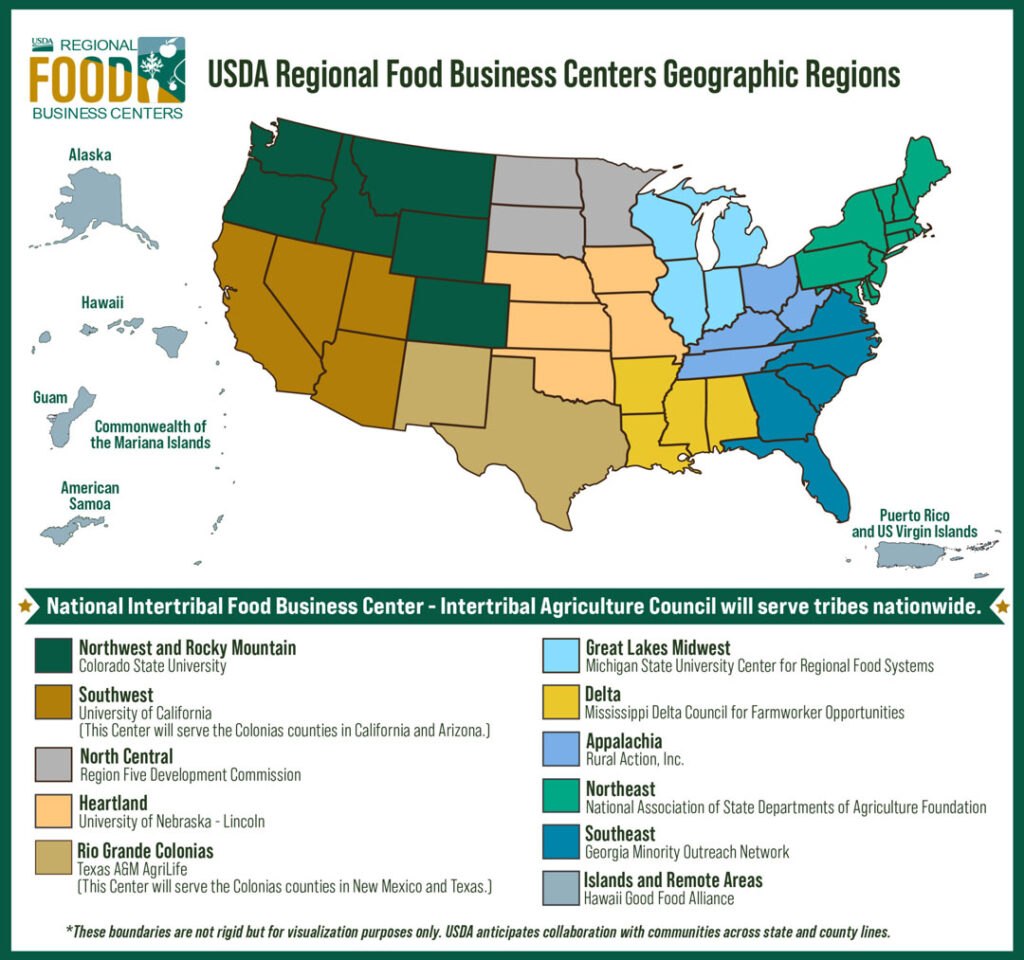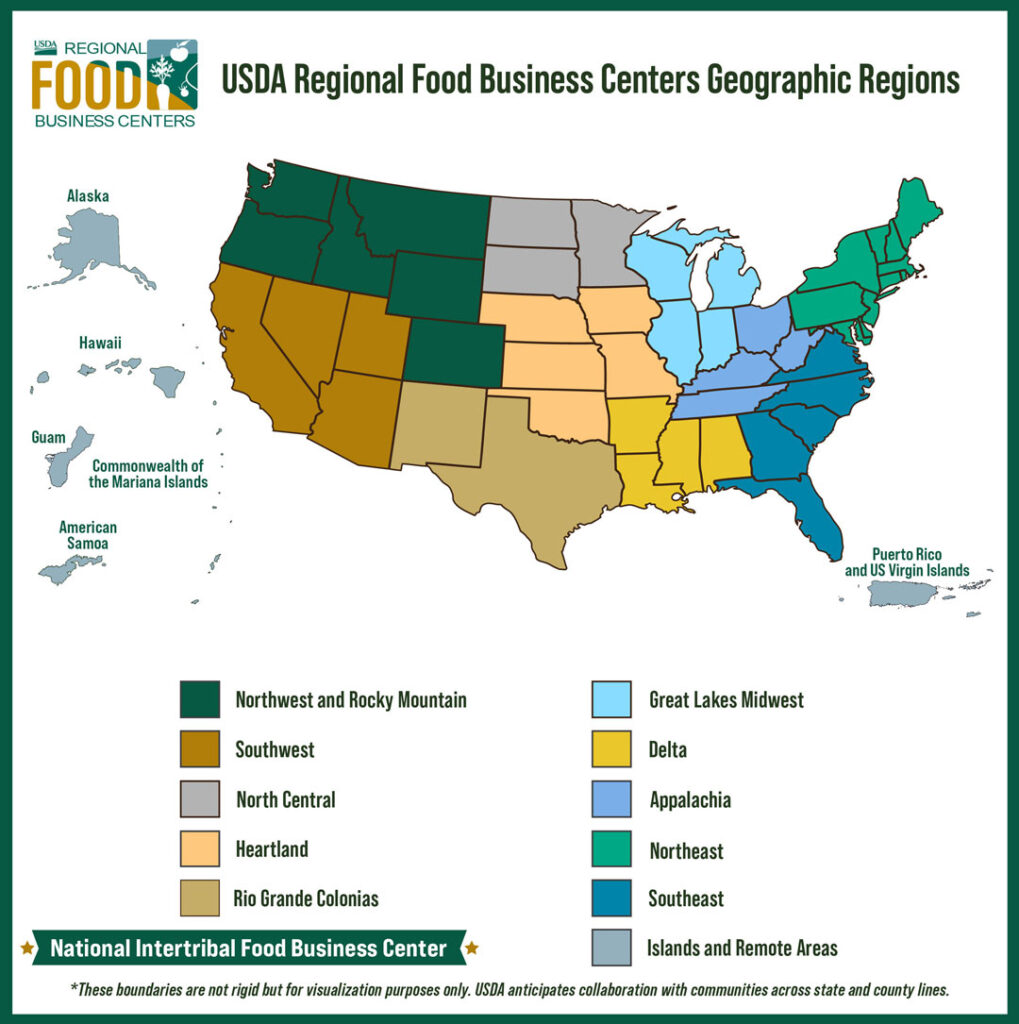by Priscilla Totiyapungprasert
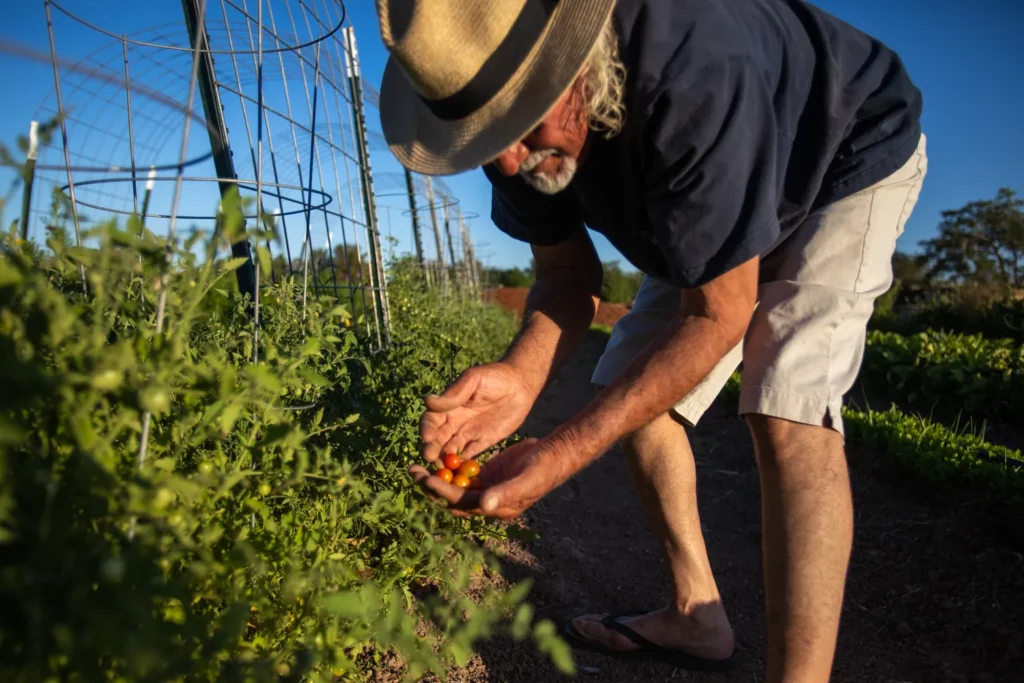
SOCORRO, Texas — Marty Loya remembers the 1970s when food vendors used to set up their stands along Socorro Road, selling plump peaches and paper lunch sacks of apricots.
Loya grew up in a white adobe house surrounded by her family’s cows, chickens and alfalfa fields. She spent her childhood climbing stacked bales of hay and riding her bicycle to sell handmade queso fresco. Her future husband, Ralph Loya, lived just down the street, helping his father tend to their corn and sell vegetables out of a pickup truck.
The barn animals and alfalfa of Marty’s childhood are long gone, but around 2016, she and Ralph started transforming the more than 100-year-old farm into a fruit and vegetable operation. At the beginning of the pandemic, Ralph renovated one of the adobe buildings into a shop. He had the time to start a new experiment, he said.
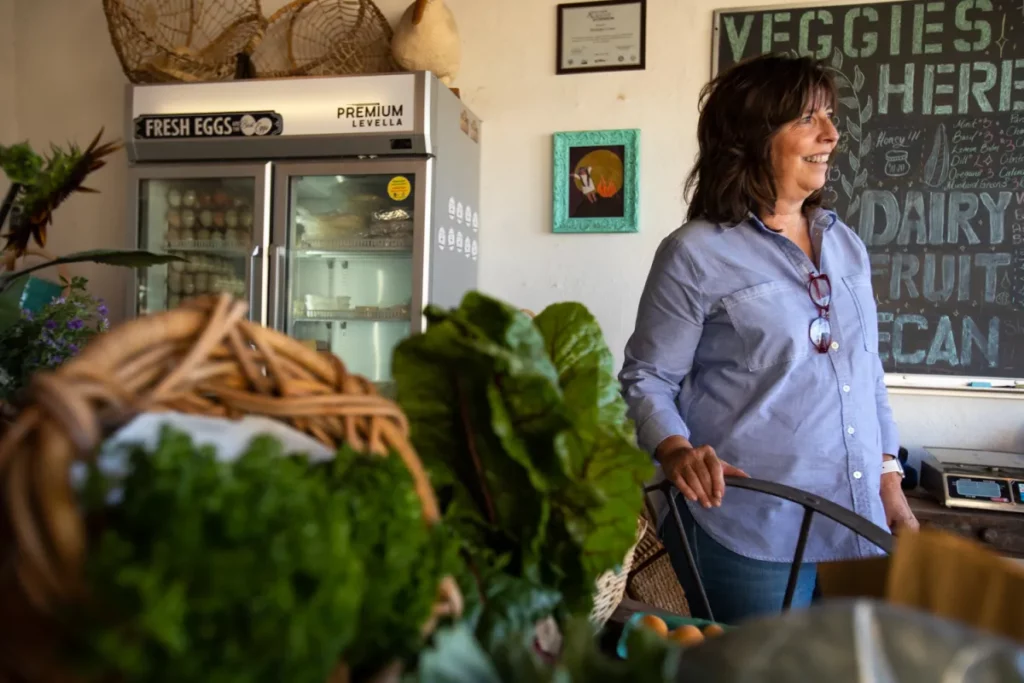
Ralph and three workers now grow enough produce to supply two grocery delivery subscriptions, La Semilla Food Center in New Mexico and Desert Spoon Food Hub in El Paso, as well as the store and several restaurants throughout Socorro and El Paso. The family behind Desert Spoon Food Hub hopes a new project they’re participating in can help more local food businesses like the Loyas’ reach more customers.
The U.S. Department of Agriculture is funding a team from El Paso to diversify food sources in the Texas and New Mexico border counties. Texas A&M AgriLife based in El Paso leads the five-year project, which the USDA refers to as a Regional Food Business Center. The team will partner with nonprofits, academic institutions and local governments on a strategy to expand the capacity of small food businesses in the region. The project will also provide technical and financial assistance to these businesses.
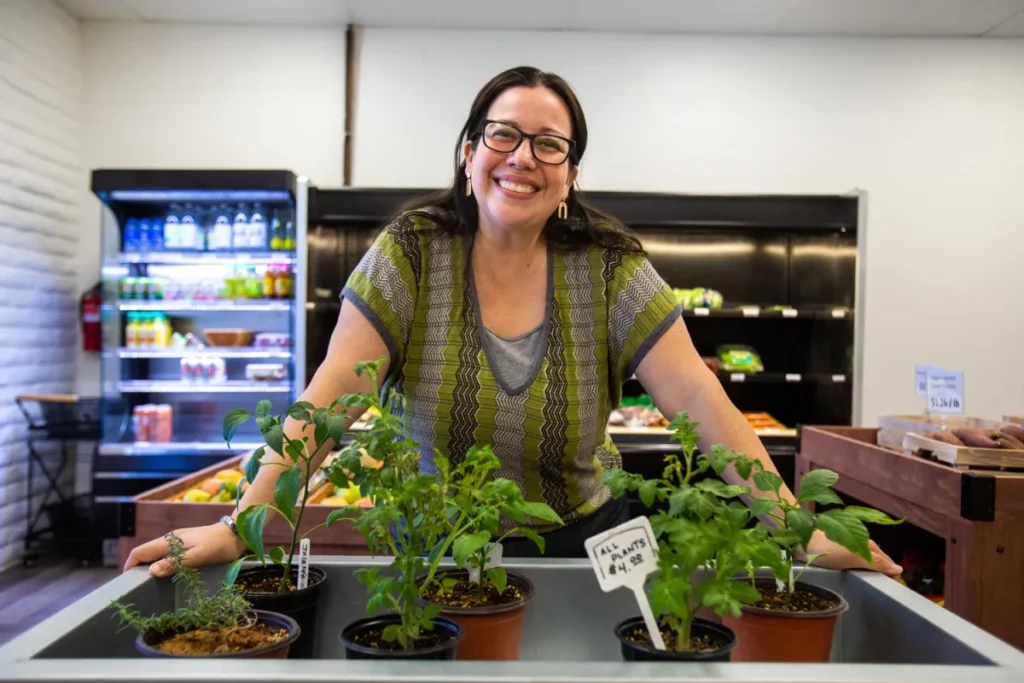
Beth Racine, director of Texas A&M AgriLife Research Center in El Paso, said she realized the need after meeting entrepreneurs and aspiring entrepreneurs at community meetings. Egg producers in San Elizario discussed the possibility of building a cooperative, while other people expressed an interest in growing nopales.
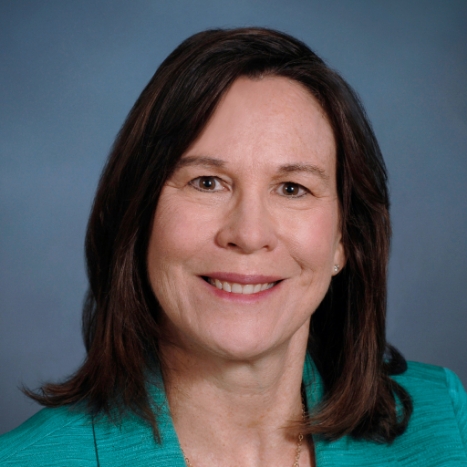
The project aims to support not only farms but the “middle men” between the producer and the consumer – transporters, refrigerated warehouses, the person making pecan pies – because the coronavirus pandemic exposed how crucial every link is in the supply chain, Racine said.
“If we are concerned about food access and food resiliency in our area, we need producers who can help meet those needs,” Racine said. “A farmer here in El Paso might grow a ton of pecans, but often can’t shell pecans here so they move them by bulk to the next spot. We could grow tons of food, but maybe none of it stays here.”
The pandemic tested the U.S. food system – magnifying cracks in a fragile network.
In March 2020, grocery stores slashed hours and had their shelves wiped out of eggs, meat, bread, beans and rice. Farms that typically supplied restaurants, hotels and schools were destroying their food. COVID-19 also depleted the workforce and created bottlenecks, forcing reopened restaurants and grocery stores to struggle with inconsistent supplies.
“I’m not under the illusion we’re going to change the food system,” Racine said. “It’s such a huge nut to crack. But by bringing awareness to the issue, that our food system is so centralized, we need to do a better job getting it down to a more regional level so we don’t have to be dependent on that centralized system that much.”
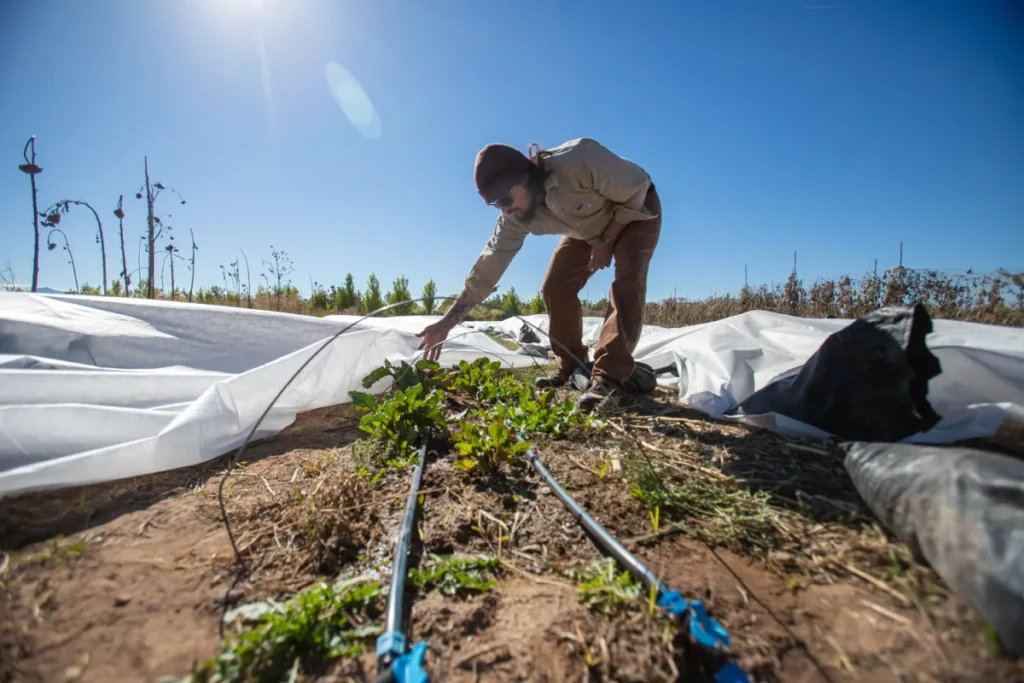
USDA is funding 12 regional food business centers across the country in underserved and tribal communities, with $30 million going to the Rio Grande region. The border team will use that fund to award grants up to $100,000 to small and medium-sized businesses starting or expanding in the region. A spokesperson for USDA said it’s up to each regional center to define what constitutes a small- or medium-sized business.
Texas A&M AgriLife is working in partnership with four main organizations: UTHealth Houston’s El Paso campus, La Semilla Food Center, Feeding Texas nonprofit and the University of Texas Rio Grande Valley. Desert Spoon Food Hub also joins as one of the project’s collaborators.
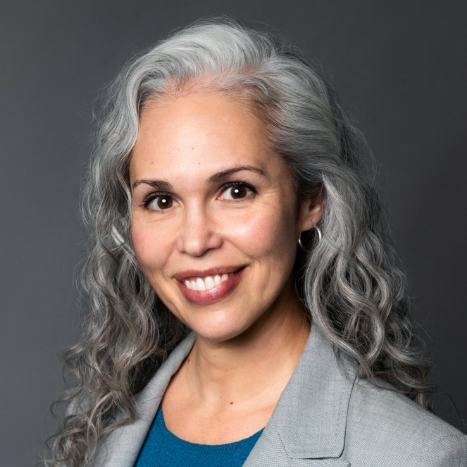
While USDA does not require project teams to prioritize public health, many of the organizations involved have a focus in this area, Racine said.
Increasing access to diverse food options can help address nutrition insecurity in El Paso, said Gabriela Gallegos, associate professor at UTHealth Houston School of Public Health in El Paso.
Thirty-five percent of people in El Paso and more than half the students at the University of Texas at El Paso experienced food insecurity last year, according to a survey conducted by UTEP and El Pasoans Fighting Hunger food bank.
Aside from hunger, food and nutrition insecurity also puts people at risk of developing or complicating the risks of Type 2 diabetes. Nearly 17% of the adult population in El Paso has been diagnosed with diabetes, which is higher than both the state and national average.
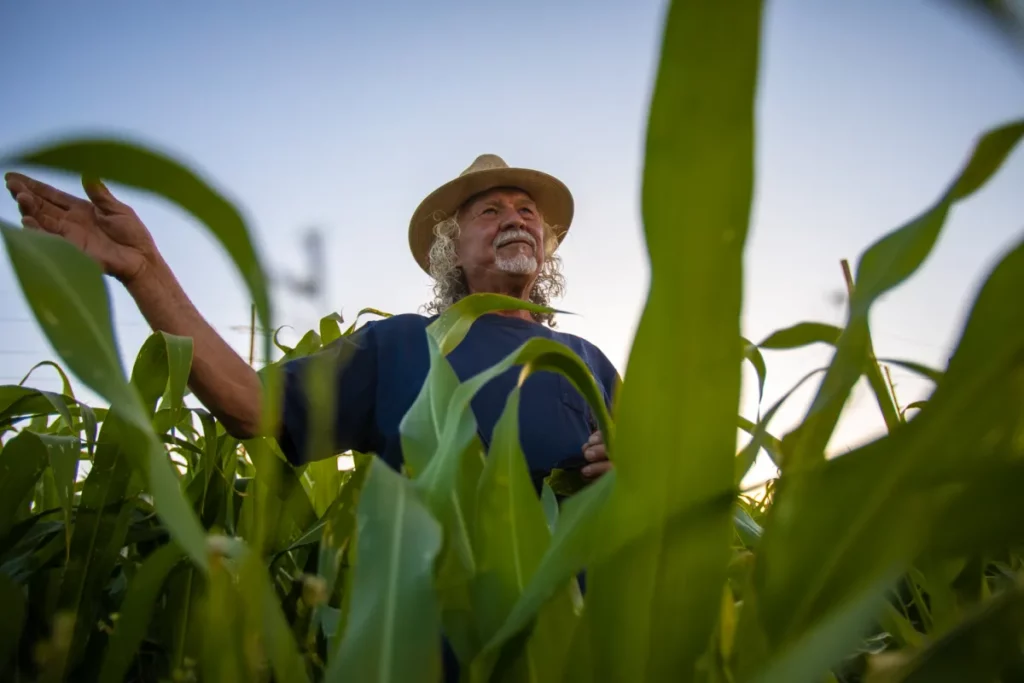
“So we saw during the pandemic certain shortages, certain changes with what we were able to get to and it looks a little bit different depending on where you lived,” Gallegos said. “So having a stronger food system is really going to be something that benefits all of us, whether it is for accessibility of healthy and affordable food or accessibility of food period.”
Recent studies show that affordability may matter more than geographic proximity when it comes to food insecurity and nutritional inequality.
There is a misconception that healthy eating – and healthy people – must look a certain way when in reality there is more than one way to feed your family, said Marina Chaparro, a Miami-based dietitian and diabetes educator. Chaparro grew up in El Paso and was diagnosed with Type 1 diabetes when she was a teenager.

Chaparro said families should focus on foods they like rather than only eliminating certain foods. She still eats huevos con chorizo and stocks up on flour tortillas from Ciudad Juárez when she’s in town. But she also eats more vegetables than she did when she was a teenager after teaching herself how to cook them.
Accessibility to food, as the USDA project is trying to address, can be helpful to some extent, Chaparro said.
But opening a grocery store that sells healthy food in an underserved area won’t necessarily make people change their shopping habits, especially if they didn’t grow up eating that kind of food and there’s no community outreach involved, she added.
“There needs to be an educational component to it,” Chaparro said. “Do you know how to cook those vegetables or fruit? Is it relevant to your family’s culture? If not, are you willing to learn? … How can we teach people to eat balanced, healthy, nourishing foods that they still enjoy?”
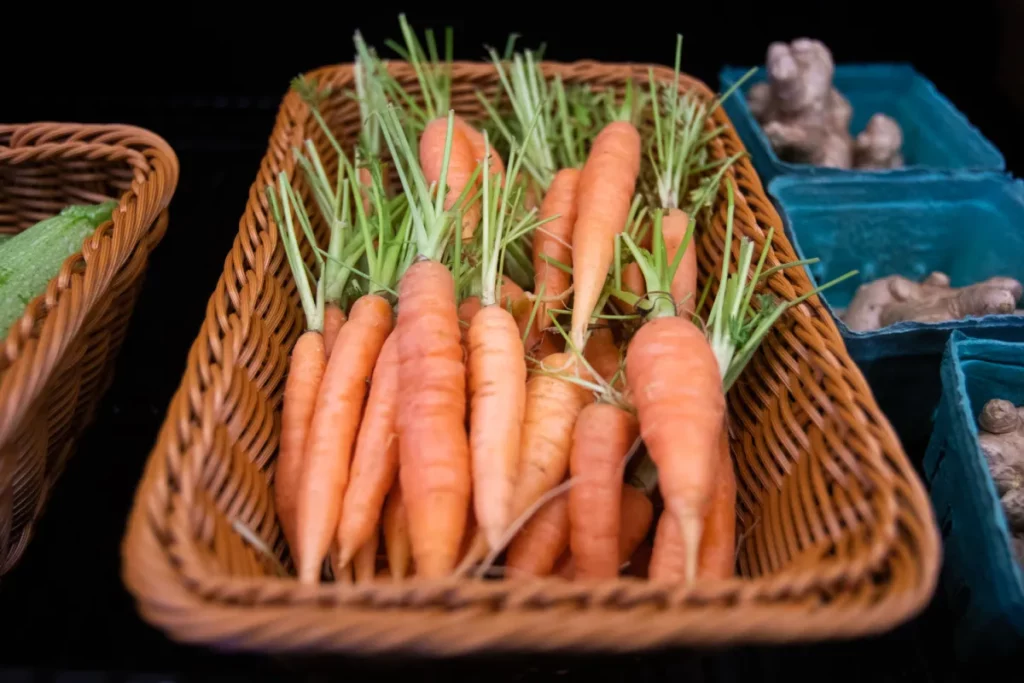
On a June evening, Ralph shooed away a pesky lilac-crowned parrot that was helping itself to a voluminous fig tree – a tree Marty’s mother planted more than 50 years ago. Marty waited at their shop to greet visitors from an incoming El Paso tour bus.
The Loyas named their farm Growing with Sara after their daughter, who died as an infant.
Marty described farming as a tough business, but somehow they’ve made it work. In one corner of their 7-acre plot, Ralph grows heirloom white corn that’s been passed down generation to generation in his family through saving seeds after each harvest. This is also his first season growing asparagus and an Oaxacan corn variety. Although not a certified organic farm, Ralph doesn’t use pesticides or herbicides, preferring the methods he learned from his father: planting flowers that deter bugs, spraying with vinegar or using a high-pressure wash.
As the sun began to set, he inspected his crops, picking small tomatoes and epazote and flowering cilantro – thrusting them out in a weather-worn hand for others to taste.
Growing with Sara has the land to produce food, but the ability to pay for additional labor would probably be most helpful in reaching more customers, Marty said. She’s curious to see how the USDA project will help small food businesses – and aspiring ones – expand in the border counties.
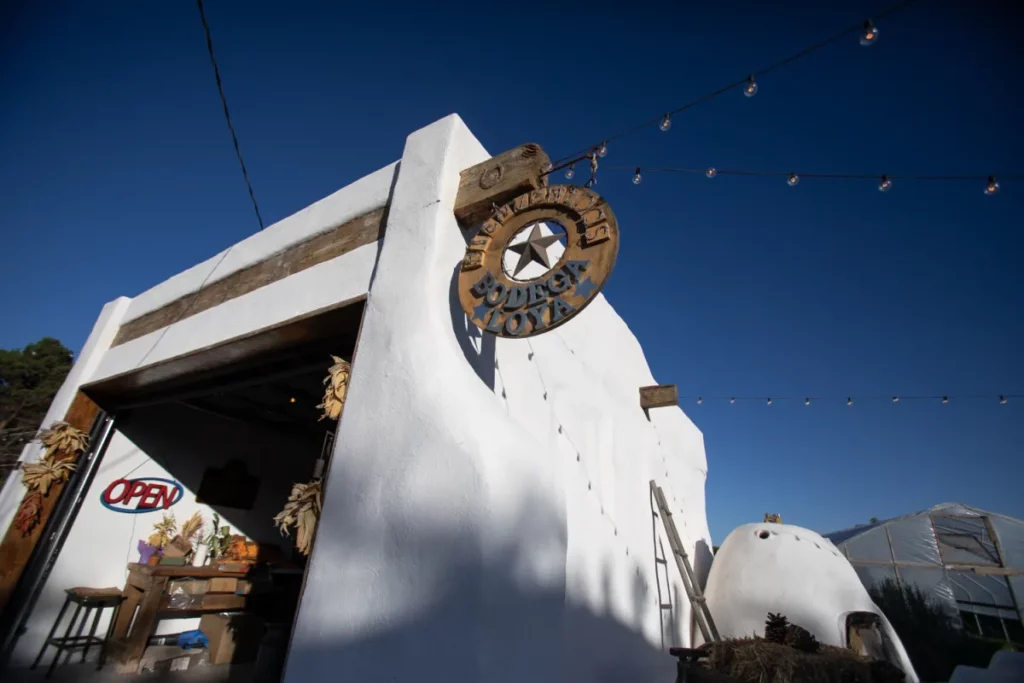
Bodega Loya, the small shop open weekends, sells a variety of fresh fruit, herbs and vegetables, along with duck and chicken eggs from other farmers, queso asadero and butter from Licon Dairy in nearby San Elizario and mushrooms from Southwest Mushrooms in New Mexico’s Mesilla Valley. Half of their sales come through farm box subscriptions and restaurant bulk purchases, however.
“I like to keep this open for the people that come shopping,” Marty said. “I like the outlet of the chefs. I like Desert Spoon. It provides us different outlets to get the foods and vegetables out because I don’t think it’s good to just be dependent on one, because you never know what’s gonna happen.”
